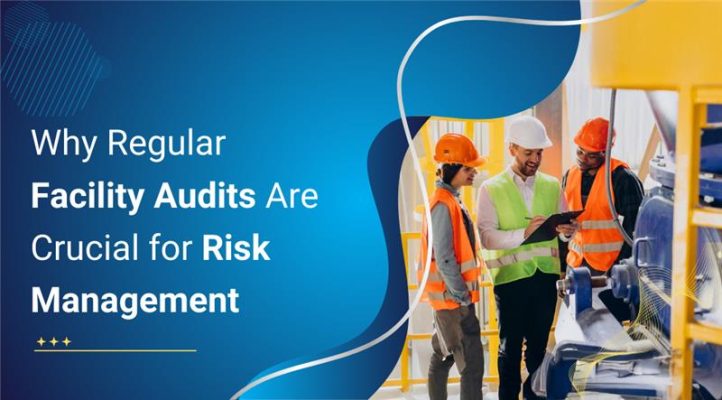Why Regular Facility Audits are Crucial for Risk Management

Effectively managing facility risks is a vital component of sustaining any successful business. Regular facility audits help identify hidden vulnerabilities and ensure your operations comply with ever-evolving regulations. These audits offer a structured framework to maintain safety, efficiency, and regulatory compliance, securing your organization’s future.
What Are Facility Audits?
Facility audits comprehensively review a facility’s processes, infrastructure, and compliance standards. These audits assess everything from workplace safety protocols and equipment maintenance to environmental impact and regulatory compliance adherence. The goal is to uncover potential vulnerabilities that could disrupt operations or result in costly fines.
The Role of Facility Audits in Risk Management
Identifying Potential Hazards
Facility audits help pinpoint risks before they escalate into critical issues. By systematically reviewing equipment, processes, and safety measures, businesses can address potential hazards proactively, minimizing the likelihood of accidents and operational disruptions.
Ensuring Regulatory Compliance
Regulations across industries are becoming increasingly stringent. Regular facility audits ensure your organization meets local, national, and industry-specific standards. Non-compliance with regulations can result in hefty fines, reputational damage, and even the suspension of operations.
Enhancing Operational Efficiency
Audits are not just about identifying risks; they also reveal inefficiencies in processes and systems. Businesses can optimize operations, reduce waste, and improve overall productivity by addressing these issues.
Building Stakeholder Confidence
Investors, customers, and employees value transparency, visibility, and accountability. Conducting regular audits demonstrates your commitment to safety, compliance, and operational excellence, fostering trust and confidence among stakeholders.
Key Areas Addressed in Facility Audits
- Workplace Safety: Identifying risks related to employee safety, including equipment hazards and emergency preparedness.
- Environmental Compliance: Ensuring adherence to ecological regulations like waste management and emissions control.
- Equipment Maintenance: Reviewing the condition of machinery and infrastructure to prevent unexpected breakdowns.
- Documentation and Records: Verifying that all necessary compliance documents and records are accurate and up to date.
Why Facility Audits Should Be Conducted Regularly
A one-time audit may address immediate issues, but ongoing audits are necessary to adapt to changing regulations and evolving risks. Regular audits create a culture of continuous improvement, helping businesses stay ahead of potential challenges and maintain regulatory compliance.
How Rhythm Innovations Supports Facility Audits
Rhythm Innovations provides cutting-edge tools to streamline the facility audit process. From centralized data management to automated compliance tracking, our solutions empower businesses to conduct thorough audits quickly and efficiently. By leveraging our platform, organizations can:
- Simplify audit planning and execution.
- Generate actionable insights to address risks.
- Ensure compliance with regulatory standards.
- Reduce the administrative burden of manual processes.
Conclusion
Incorporating regular facility audits into your risk management strategy is critical to safeguarding your business. Let Rhythm Innovations help you navigate the complexities of facility audits and achieve peace of mind. Contact us today to learn more about our comprehensive solutions. Click here to explore more.




